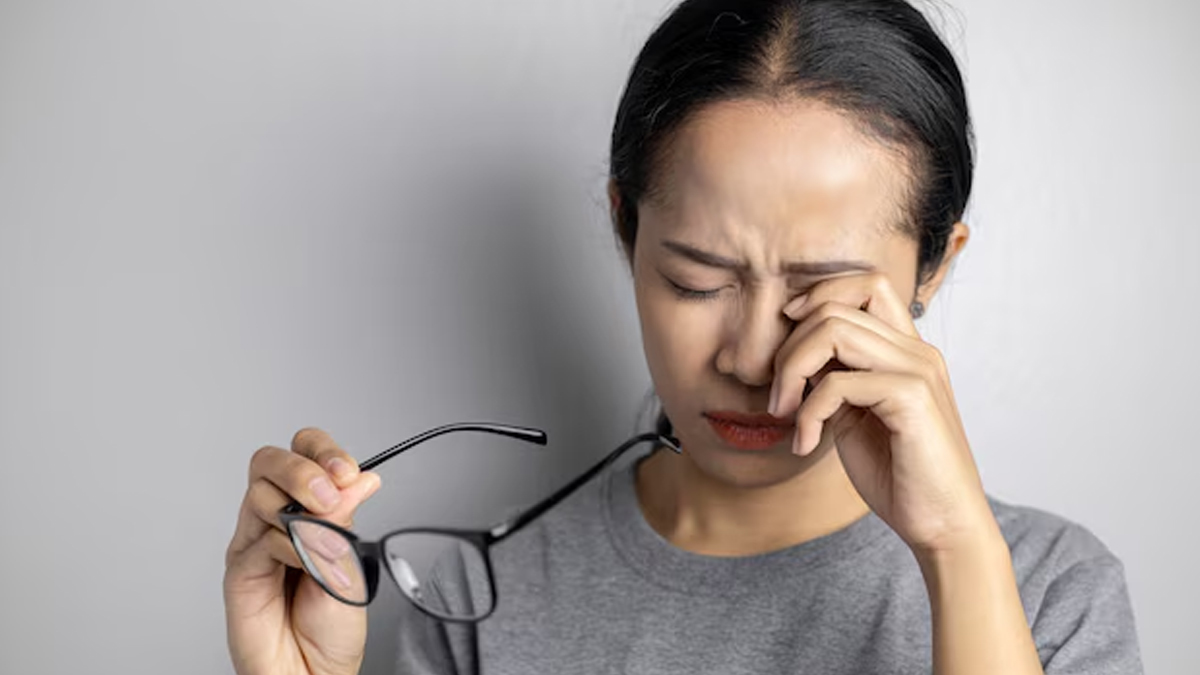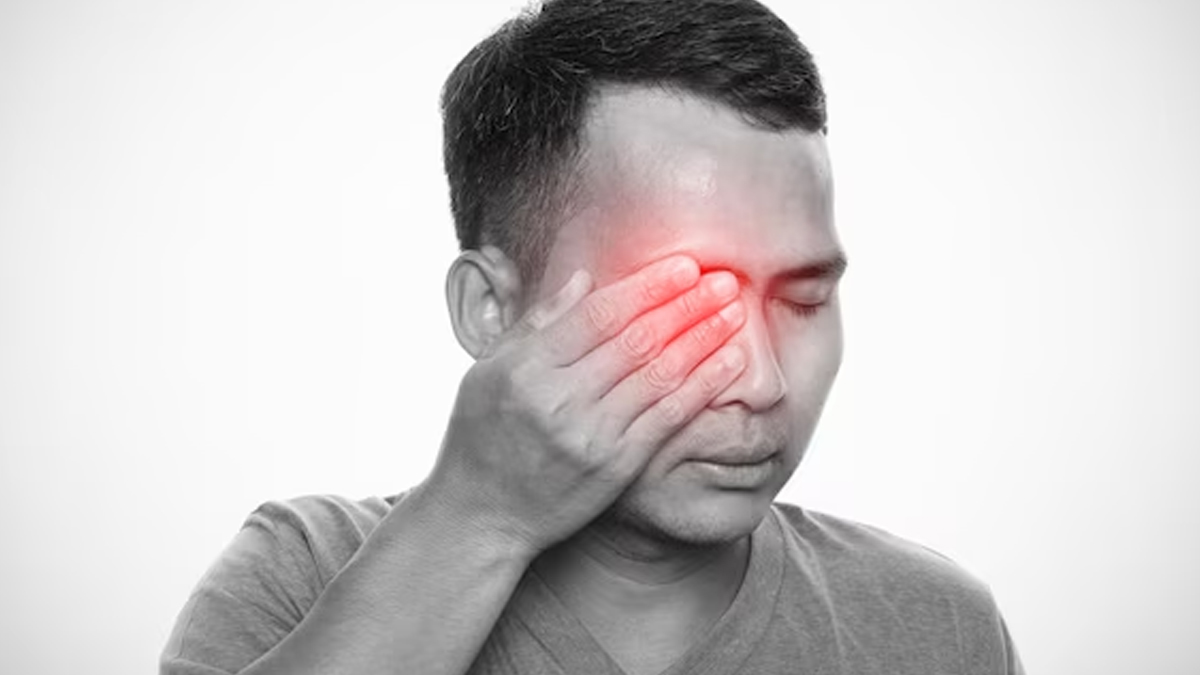
A tiny speck of dust, an eyelash, a fly, or even a piece of debris can suddenly irritate your eye. When something gets into your eye, it’s natural to panic, especially if you're riding a bike. But what you do next can make all the difference.
Table of Content:-
In an interaction with the OnlyMyHealth team, Dr Shailashree, Consultant Ophthalmologist, Dr Agarwals Eye Hospital, Banashankari, Bengaluru, helped us understand the safest steps to take and the red flags that signal an emergency.
Also Read: Aggressive Eye Rubbing May Damage Your Eyes; Here’s How To Safely Remove Irritants Instead
First Things First: Gently Flush Your Eye

According to Dr Shailashree, the safest first step is to gently flush your eye with clean water. This can help dislodge small particles like dust or pollen. Tilt your head so the affected eye is lower and use a clean glass of water or a sterile saline solution to rinse it out. Avoid using soap or any non-sterile liquids.
If discomfort persists or you feel something is still stuck, it’s best to consult an eye doctor immediately.
When NOT To Flush Or Rub Your Eye
While flushing the eye is usually a safe first response, there are times when you should absolutely avoid flushing or rubbing. This includes instances, such as:
- If a large or sharp object is embedded in the eye
- If there is bleeding or a visible scratch on the eye
- If you feel intense pain or suspect chemical exposure
- Rubbing or applying pressure in these cases can worsen the injury and lead to further complications.
Emergency Symptoms To Watch Out For

Not every case of “something in the eye” is an emergency—but some definitely are. Seek urgent medical attention if you experience:
- Blurry or distorted vision
- Severe or deep pain
- Bleeding from the eye
- A sharp-edged object lodged in the eye
- Exposure to chemicals or high-speed impact injuries
These signs could indicate a more serious injury that needs immediate care from an ophthalmologist.
Also Read: How To Manage Eye Irritation Amid Increase In Air Pollution Ahead Of Diwali
Could It Be A Scratch On The Eye? Here's How To Tell
-1749457306167.jpg)
Sometimes, the foreign object may leave behind a scratch on the cornea (the clear surface of the eye). According to Dr Shailashree, symptoms of a scratched eye include:
- Persistent pain or discomfort
- Excessive watering or tearing
- Sensitivity to light (photophobia)
- Blurred or distorted vision
- Even if the object is gone, these signs suggest you should see an eye specialist promptly.
What You Can And Shouldn’t Do At Home
Do's:
- Gently flush your eye with clean water or saline.
- Blink several times to try and remove small particles naturally.
- Visit an eye doctor if symptoms persist.
Don’ts:
- Rub or press on your eye.
- Use sharp objects like tweezers or cotton swabs to remove anything.
- Leave the foreign object in your eye for long.
- Try DIY remedies that aren’t doctor-approved.
Conclusion
Your eyes are delicate and precious. While many minor irritants can be washed away at home, knowing when to stop and seek help is crucial. If in doubt, always consult an eye care professional—your vision is worth it.
Also watch this video
How we keep this article up to date:
We work with experts and keep a close eye on the latest in health and wellness. Whenever there is a new research or helpful information, we update our articles with accurate and useful advice.
Current Version